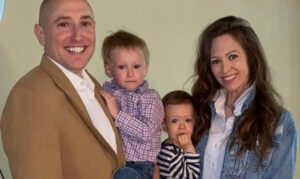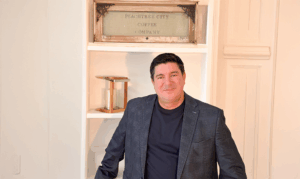President Obama is right. When he talks about the “Bush tax cuts,” the President bemoans the fact that these cuts inequitably distribute the tax burden among Americans. Instead of this inequality, he argues that we need to return to tax rates that promote “shared sacrifice” and ensure that all of us pay our “fair share” of earnings to the federal government. True enough.
But President Obama is not right in the way he thinks he is right. When the President speaks of “shared sacrifice,” he means that “the rich” do not pull their weight and keep too much of their money for themselves rather than sending it to the government for the common good.
The actual facts about the Bush tax cuts, however, paint a startlingly different picture than the one the President articulates in his speeches. The cuts apply to all American income-earners and remove millions and millions from the obligation of paying any income taxes.
Indeed, half of Americans now pay no federal income taxes at all. Additionally, through the earned income credit, 30 percent of Americans receive tax refunds for taxes they do not even pay.
So who, then, is paying taxes to the federal government? The rich. In everyday terms, “fair share” would mean a rough equivalency between the percentage of taxes paid and the percentage of income earned. Based on this definition, the rich do not pay their fair share. They pay far more.
Here are the numbers: The top 1 percent earn 19 percent of the income but pay 38 percent of the taxes. The top 5 percent earn 33 percent of the income but pay 57 percent of the taxes. The top 25 percent earn 66 percent of the income but pay 85 percent of the taxes.
These figures show two things. First, the top income earners pay a disproportionately high share of all income taxes. Second, the higher up on the income ladder one goes, the greater the share of all income taxes that person pays.
To hear President Obama tell it, however, high-income earners pay hardly anything in taxes while those on the lower end of the economic spectrum are forced to carry the burden for all of us. As the facts bear out, the reality is exactly the opposite.
Now it may very well be that our present inequitable system of making high-income earners pay a higher proportion in taxes than they earn in income is sound public policy. That is a different debate for another time. The point here is that the President’s rhetoric is totally divorced from the truth and highlights the hollowness of his platitudes on this issue.
Does a call for “shared sacrifice” have any real meaning when the President directs his ire toward those who already pay twice their pro rata share in taxes and yet leaves other income earners who pay nothing untouched? How much more do the rich have to pay to reach their “fair share”?
President Obama’s deception goes deeper still when he blames our debt problem on a small minority of citizens holding the country “hostage” by refusing to raise taxes on the rich. Not so.
The top federal income tax bracket now sits at 35 percent. Even if we doubled this rate to 70 percent, the United States would still have roughly a trillion-dollar deficit. That’s trillion with a “t.”
Taxes aren’t the problem; spending is. Why then the unrelenting focus on taxing the rich?
Not because of economic policy. Rather, the push for tax increases on the rich is philosophical, primal even. The prevailing mindset of the American Left is that success is the product of fortuity, not achievement. If fate determines income, as this viewpoint believes, then the rich have no moral claim to the money they earn.
This line of thinking is the path to financial misery. All of us should take heed of the writer Robert Heinlein’s warning that the standard of living to which we in America are accustomed is not the natural state of the world:
“Throughout history, poverty is the normal condition of man. Advances which permit this norm to be exceeded — here and there, now and then — are the work of an extremely small minority, frequently despised, often condemned, and almost always opposed by all right-thinking people. Whenever this tiny minority is kept from creating, or (as sometimes happens) is driven out of a society, the people then slip back into abject poverty.
This is known as ‘bad luck.’”
Heinlein is kidding at the end, of course. Bad luck has nothing to do with it. Punishing success is a choice.
It is also economic suicide — for the rich, poor, and middle-class alike.
[Lance McMillian is a Fayette County resident and law professor at Atlanta’s John Marshall Law School.]










Leave a Comment
You must be logged in to post a comment.